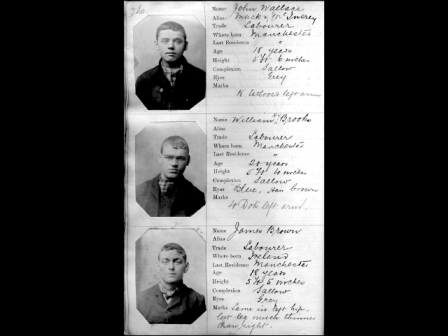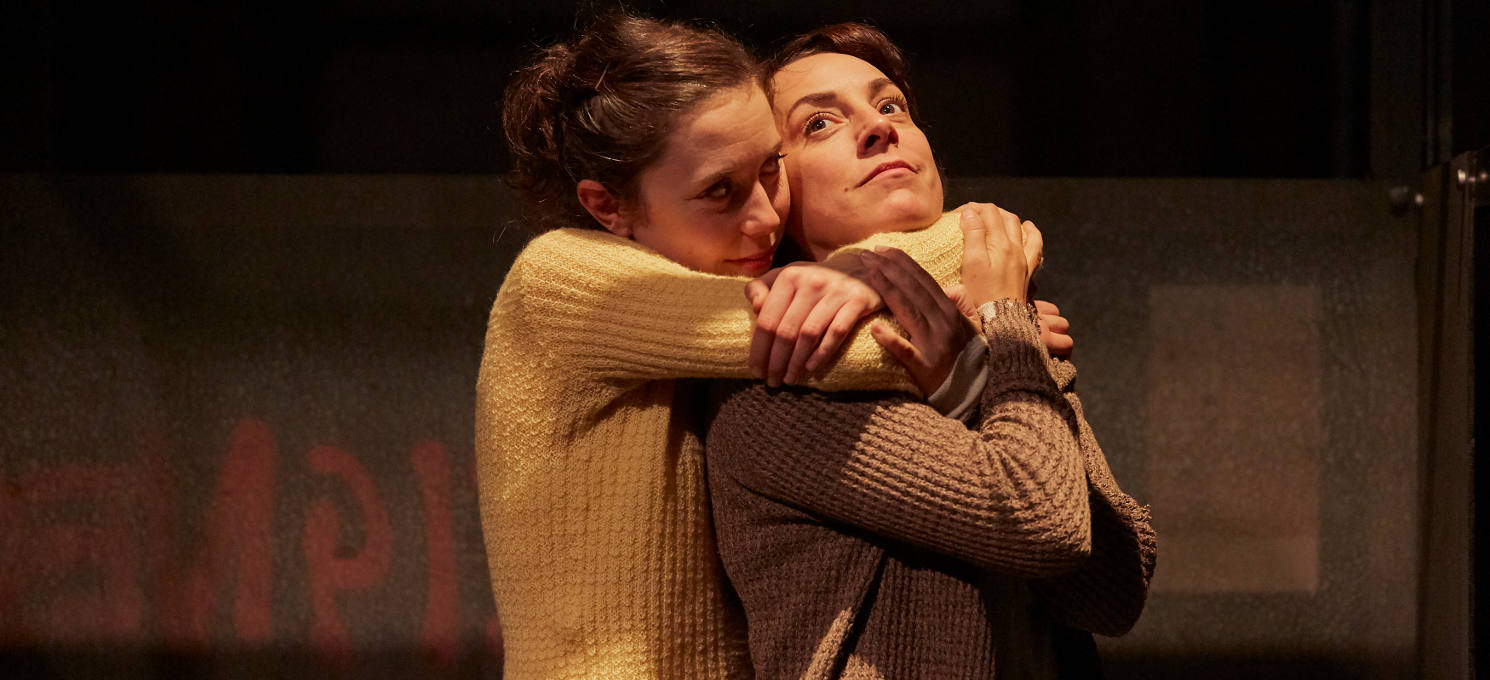For a man who won the BBC Young Musician of the Year Composer’s Award aged 17, composer and director Tim Benjamin is a charming and modest man. I say modest because now, at 37, Benjamin offers up his new opera, Emily not in Manchester where he studied at the Royal Northern College of Music, but in the little known, yet perfectly formed, 1908, 500-seater Hippodrome Theatre in Todmorden, Yorkshire.
I was thrilled to be invited to the dress rehearsal of the opera – which follows the final years in the infamous suffragette, Emily Davison’s life – before its world premiere on July 4. Prepared for the bumps, creaks and scrapes one normally encounters in a dress, I sat in the circle balcony for Act One and was pleasantly surprised to find the first half both smooth-running and thoroughly engaging.
Opening in 1918, the prologue sees a politician address the House of Commons at the passing of The Representation of the People Act. We then flash back to 1910, when a certain suffragette and heroine of the piece, Davison (Stephanie Stanway), is caught by a policeman (Louis Hurst) hiding in a ventilation shaft inside the Palace of Westminster. This first scene jumps about in time with several attempts at the arrest of Davison, finally culminating in her being thrown into prison.
 Scene two has the stage split into two areas. A doctor (Marc Callahan), a politician (Christopher Jacklin) and a magistrate (Sebastian Charlesworth) are in a London club discussing Davison’s criminal record and the punishment she will receive. On the other side, we see Davison’s incarceration and her eventual punishment: force-feeding. As the gentlemen quaff whisky, Davison is near-choked as hosing is thrust into her gullet. It’s a disturbing spectacle and the powerful climax ends with Davison vowing “no surrender”; a moving lament.
Scene two has the stage split into two areas. A doctor (Marc Callahan), a politician (Christopher Jacklin) and a magistrate (Sebastian Charlesworth) are in a London club discussing Davison’s criminal record and the punishment she will receive. On the other side, we see Davison’s incarceration and her eventual punishment: force-feeding. As the gentlemen quaff whisky, Davison is near-choked as hosing is thrust into her gullet. It’s a disturbing spectacle and the powerful climax ends with Davison vowing “no surrender”; a moving lament.
Act Two opens with Davison having already sustained her fatal injuries from the King’s horse at Epsom Downs. Here, Davison lies on the mortuary table, ready for post-mortem. The news is told by the reporter (James Claxton), who is both the only non-singing principal role and a local community theatre actor. Claxton does a splendid job and holds his own aside the singers.
Then, the opera begins to jump about in time which has a peculiar distancing effect. Although it’s clear the research has been done and there’s plenty of fascinating history throughout, there’s an almost clinical interpretation of events.
This, is, in part, due to Benjamin’s decision with regards the libretto. As he states in the programme, he doesn’t work with librettists, instead opting for source material. “I try to find documents never intended to come anywhere near a stage: previously I’ve set…diaries, bread and cake recipes.”
It’s a sticking point as, with the help of a story, rather than a retelling of historical events, there may have been scope for a deeper emotional journey with which an audience might engage.
Having said that, this ambitious new opera is entertaining and there is enough going on both offstage and in the orchestra pit to offer huge returns for a night out. There is a wonderful solo by Meinir Wyn Roberts playing a woman who, on discovering a letter sent by Davison’s mother, is compelled to empathise. It’s a moving moment as is, too, the final scene.
Davison’s ghost moves about a polling station for some time after her demise. She is unseen by the voters – both men and women by now. This is a gorgeous crescendo and powerful epilogue which left me feeling both unworthy of Davison’s sacrifice and also proud of those women who fought (and are still fighting) for equality.
Benjamin, alongside his musical director, Anthony Brannick, has created quite a feat. Working with both trained opera singers in principal roles and local supporting actors from the Hippodrome’s amateur dramatics company, the opera has an earthy and eclectic energy. 
Having already sold more than 300 tickets for the short three-night run, it’s time to pick up the phone, book your tickets (a meagre £12), get in your car/catch the train/bus and take a trip to the lovely West Yorks theatre to watch a world premiere about a very important woman indeed.
Review by Lucia Cox
What: Emily
Where: Todmorden Hippodrome
When: until July 6, 2013
More info: http://www.todhip.org/Emily-The-Opera.html












